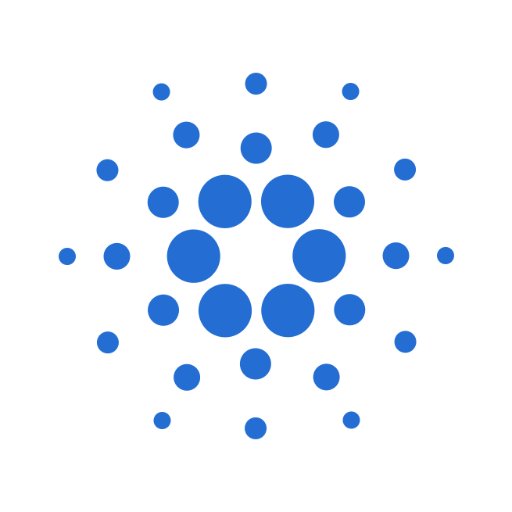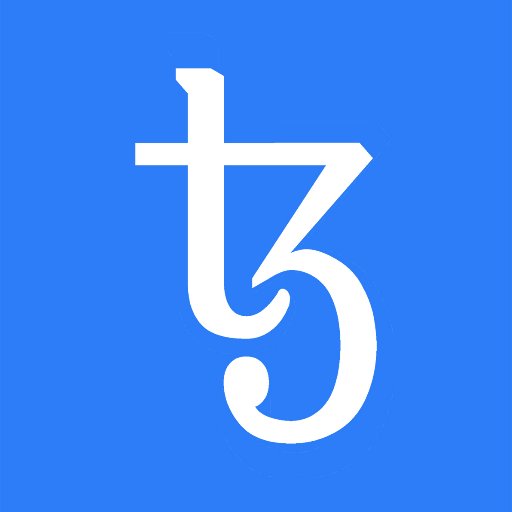Vergleichen Cardano (ADA) vs Tezos (XTZ) Coin
Like never before, the world of cryptocurrency is witnessing a rising tide of competition playing out in various dimensions, especially between Cardano (ADA) and Tezos (XTZ). This article will delve into a comprehensive comparison between these two dominant forces in the digital currency universe, focusing on their primary attributes, technological edge, and trade-offs. Our aim is to arm prospective investors and technology enthusiasts with balanced insight for a more informed decision.
User rating
Cryptogeek rating
Über
|
Cardano-Münze (ADA) ist eine Kryptowährung, die 2017 eingeführt wurde. Die Währung basiert auf dem Cardano-Netzwerk. Der Leiter des Entwicklerteams ist Charles Hoskinson, ein erfahrener Entwickler, der vor dem Start von Cardano für Ethereum und BitShares gearbeitet hat. Cardano ist die erste Kryptowährung, die von Experten begutachteten Open-Source-Code verwendet, was dieses Projekt einzigartig macht. Der Konsensalgorithmus von Cardano ist Proof-of-Stake. Cardano wird normalerweise für sein hohes Maß an Sicherheit und seine schnellen Transaktionen gelobt. Die Cardano-Währung gewann schnell an Wert und wurde nach Marktkapitalisierung zu einer der Top-10-Kryptowährungen.
|
Tezos ist eine intelligente Vertragsplattform mit einer eigenen Blockchain und einem nativen Token (Tezos, XTZ). Die Steuerung erfolgt über den Proof-of-Stake-Algorithmus. Dies bedeutet, dass Stakeholder (diejenigen, die mindestens 10.000 XTZ besitzen) für Änderungen im Protokoll stimmen. Diese Validatoren ("Bäcker") erhalten Belohnungen für die Durchführung der Validierung. Die Belohnungen werden durch Inflation generiert. Wer sein XTZ an Bäcker delegiert, kann auch verdienen. Tezos verfügt über einen integrierten "Selbstanpassungs" -Mechanismus, der es ermöglicht, das Netzwerk zu formen, ohne Gabeln herstellen zu müssen. Es hält die Community zusammen und erleichtert den Entwicklungsprozess.
|
Art
Gründungsdatum
Land
Sprachen
Team
Protokoll
|
Public blockchain
|
Public blockchain
|
Aktueller Preis (USD)
Allzeithoch (USD)
Preisänderung (24h)
Volumen (24h)
|
146539519.64994
|
1095721.11059
|
Hashrate
Max Versorgung
|
45000000000.00000
|
Keine Daten
|
Gesamtangebot
Umlaufversorgung
|
45000000000.00000
|
1075753837.55660
|
Transaktionsgeschwindigkeit / Blockierungszeit
Transaktionsgebühr
Rentabilität des Bergbaus
Algorithmus
Proof-Typ
Voll prämiert
Intelligente Vertragsadresse
Insgesamt abgebaute Münzen
|
25927070538.00000
|
810904882.00580
|
Ist Handel
Blockbelohnung
|
0.000000000000
|
0.000000000000
|
Zeit blockieren
| Über |
Cardano-Münze (ADA) ist eine Kryptowährung, die 2017 eingeführt wurde. Die Währung basiert auf dem Cardano-Netzwerk. Der Leiter des Entwicklerteams ist Charles Hoskinson, ein erfahrener Entwickler, der vor dem Start von Cardano für Ethereum und BitShares gearbeitet hat. Cardano ist die erste Kryptowährung, die von Experten begutachteten Open-Source-Code verwendet, was dieses Projekt einzigartig macht. Der Konsensalgorithmus von Cardano ist Proof-of-Stake. Cardano wird normalerweise für sein hohes Maß an Sicherheit und seine schnellen Transaktionen gelobt. Die Cardano-Währung gewann schnell an Wert und wurde nach Marktkapitalisierung zu einer der Top-10-Kryptowährungen.
|
Tezos ist eine intelligente Vertragsplattform mit einer eigenen Blockchain und einem nativen Token (Tezos, XTZ). Die Steuerung erfolgt über den Proof-of-Stake-Algorithmus. Dies bedeutet, dass Stakeholder (diejenigen, die mindestens 10.000 XTZ besitzen) für Änderungen im Protokoll stimmen. Diese Validatoren ("Bäcker") erhalten Belohnungen für die Durchführung der Validierung. Die Belohnungen werden durch Inflation generiert. Wer sein XTZ an Bäcker delegiert, kann auch verdienen. Tezos verfügt über einen integrierten "Selbstanpassungs" -Mechanismus, der es ermöglicht, das Netzwerk zu formen, ohne Gabeln herstellen zu müssen. Es hält die Community zusammen und erleichtert den Entwicklungsprozess.
|
| Art |
Art
coin
|
Art
coin
|
| Gründungsdatum |
Gründungsdatum
2017
|
Gründungsdatum
2016
|
| Land |
Land
International
|
Land
USA
|
| Sprachen |
Sprachen
Keine Daten
|
Sprachen
Keine Daten
|
| Team |
Team
Public
|
Team
Public
|
| Protokoll |
Protokoll
Public blockchain
|
Protokoll
Public blockchain
|
| Aktueller Preis (USD) |
Aktueller Preis (USD)
0.9221
|
Aktueller Preis (USD)
0.8717
|
| Allzeithoch (USD) |
Allzeithoch (USD)
1.3300
|
Allzeithoch (USD)
4.4600
|
| Preisänderung (24h) |
Preisänderung (24h)
8.16
|
Preisänderung (24h)
9.66
|
| Volumen (24h) |
Volumen (24h)
146539519.64994
|
Volumen (24h)
1095721.11059
|
| Hashrate |
Hashrate
Keine Daten
|
Hashrate
Keine Daten
|
| Max Versorgung |
Max Versorgung
45000000000.00000
|
Max Versorgung
Keine Daten
|
| Gesamtangebot |
Gesamtangebot
Keine Daten
|
Gesamtangebot
Keine Daten
|
| Umlaufversorgung |
Umlaufversorgung
45000000000.00000
|
Umlaufversorgung
1075753837.55660
|
| Transaktionsgeschwindigkeit / Blockierungszeit |
Transaktionsgeschwindigkeit / Blockierungszeit
50
|
Transaktionsgeschwindigkeit / Blockierungszeit
15
|
| Transaktionsgebühr |
Transaktionsgebühr
Keine Daten
|
Transaktionsgebühr
Keine Daten
|
| Rentabilität des Bergbaus |
Rentabilität des Bergbaus
high
|
Rentabilität des Bergbaus
medium
|
| Algorithmus |
Algorithmus
Ouroboros
|
Algorithmus
Keine Daten
|
| Proof-Typ |
Proof-Typ
PoS
|
Proof-Typ
DPoS
|
| Voll prämiert |
Voll prämiert
Keine Daten
|
Voll prämiert
Keine Daten
|
| Intelligente Vertragsadresse |
Intelligente Vertragsadresse
Keine Daten
|
Intelligente Vertragsadresse
Keine Daten
|
| Insgesamt abgebaute Münzen |
Insgesamt abgebaute Münzen
25927070538.00000
|
Insgesamt abgebaute Münzen
810904882.00580
|
| Ist Handel |
Ist Handel
yes
|
Ist Handel
yes
|
| Blockbelohnung |
Blockbelohnung
0.000000000000
|
Blockbelohnung
0.000000000000
|
| Zeit blockieren |
Zeit blockieren
Keine Daten
|
Zeit blockieren
Keine Daten
|
Sozial
Webseite
Twitter
Vorteile
|
Friendly
Peer-reviewed technology
Scalable
|
Has impressive on-chain governance
Self-amending blockchain
Secure smart contract programming language
|
Nachteile
|
Competitors in the same space
Still in development
Multiple chains
|
ICO was followed by delays
Young ledger
High-risk investment
|
Bewertung
| User rating |
User rating
4.3 / 5
7 Benutzerbewertungen
|
User rating
4.5 / 5
4 Benutzerbewertungen
|
| Cryptogeek rating |
Cryptogeek rating
3.8 / 5
|
Cryptogeek rating
3.4 / 5
|
| Vorteile |
Vorteile
Friendly
Peer-reviewed technology
Scalable
|
Vorteile
Has impressive on-chain governance
Self-amending blockchain
Secure smart contract programming language
|
| Nachteile |
Nachteile
Competitors in the same space
Still in development
Multiple chains
|
Nachteile
ICO was followed by delays
Young ledger
High-risk investment
|
Cardano (ADA) Benutzerbewertung ist 4.3, basierend auf 7 Benutzerbewertungen. Tezos (XTZ) Benutzerbewertung ist 4.5, basierend auf 4 Benutzerbewertungen.
We also calculate the special Cryptogeek TrustScore based on the characteristics of each coin.
Wählen Sie andere Unternehmen aus
In conclusion, there's no definitive verdict on whether Cardano (ADA) or Tezos (XTZ) is superior as both digital currencies present distinct virtues and have their unique areas of expertise. The choice between them largely depends on the individual investor's goals, risk appetite and perspective on their future developments. Hence, understanding the nuances, as laid out in this comparison, forms the bedrock of a more informed investment decision. Stay updated, stay invested, and stay informed!
Like never before, the world of cryptocurrency is witnessing a rising tide of competition playing out in various dimensions, especially between Cardano (ADA) and Tezos (XTZ). This article will delve into a comprehensive comparison between these two dominant forces in the digital currency universe, focusing on their primary attributes, technological edge, and trade-offs. Our aim is to arm prospective investors and technology enthusiasts with balanced insight for a more informed decision.

